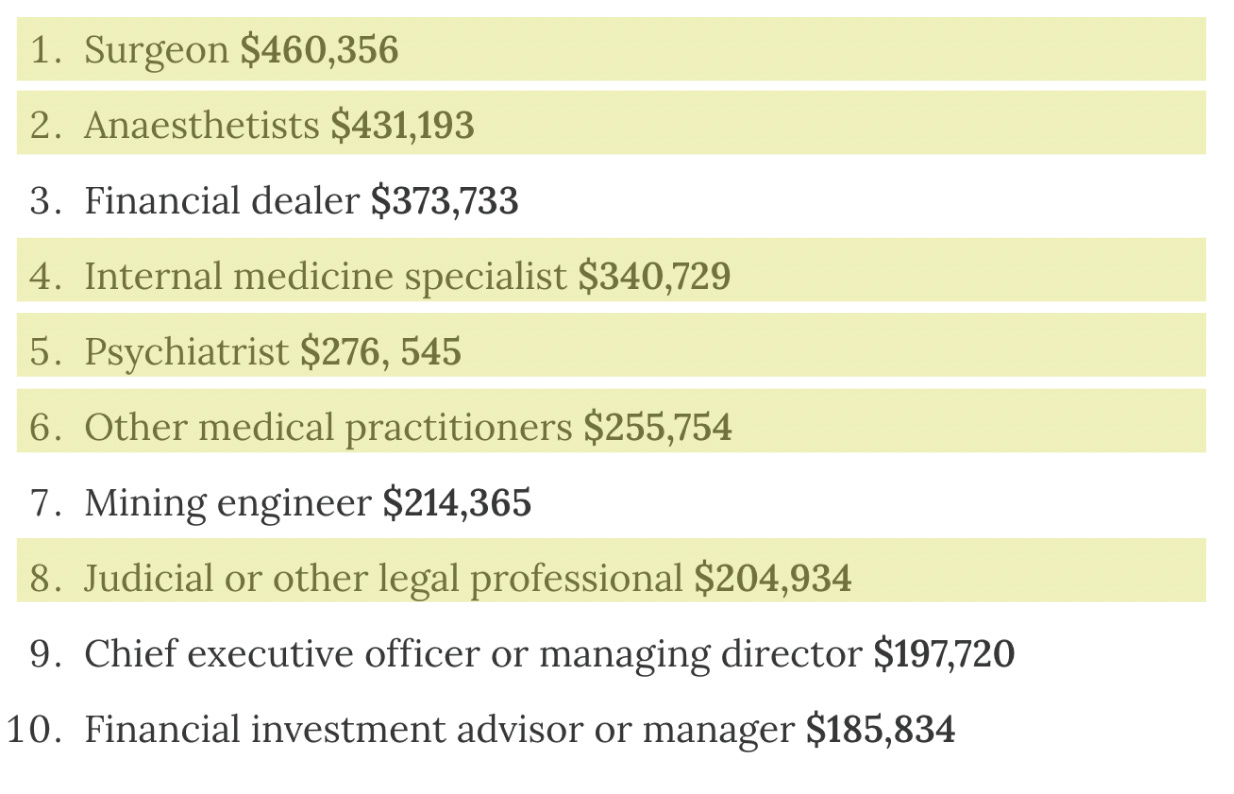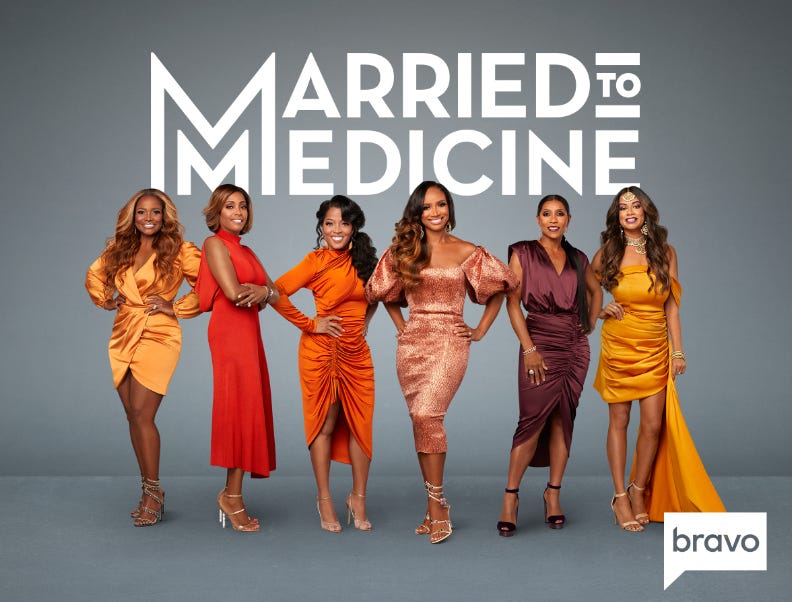👩🎓Career Strategy #2: Controlled Supply
A.k.a. why everyone wants to be a doctor, lawyer or Harvard graduate.
Welcome back to Fuzzy’s Career Strategy Series, where we share research-backed strategies & stories to help you realise your best career.
Part 1: 👋 Introducing the Career Strategy Series
Part 2: 🪜 Ladder Climbing as a Strategy
Part 3: 👩🎓 Controlled Supply as a Strategy
Part 5: 🔍 Niche-ing as a Strategy
Part 6: 🧱 Skill-stacking as a Strategy
Part 7: 👷 Be A Generalist as a Strategy
Part 8: 📊 The Portfolio Career as a Strategy
Part 9: 📣 Building a Platform as a Strategy
Part 10: 🌊 Wave-surfing as a Strategy
Part 11: 🏗️ Adding Leverage as a Strategy
Part 12: 🌏 Proximity as a Strategy
Part 13: ⏱️ Sequencing as a Strategy
Part 14: 🧪 Optimising for Discovery as a Strategy
Part 15: ⚡ Do What Gives You Energy as a Strategy
Part 16: 💹 Arbitrage as a Strategy
You have thousands of possible career pathways, but our research found there ~10-15 dominant career strategies, which can be layered together if needed - and we’ll break them down in this series.
👩🎓 Introducing Strategy #2: Controlled Supply 👩🎓
We’re starting with more ‘traditional’ strategies, then moving onto more innovative or uncommon ones. And this week, we’re tackling an absolute classic: controlled supply.
👨🏫 Pop quiz: what are the highest paid professions?
According to the Australian Tax Office:
🙋 And what do they have in common?
Well, apart from there being a lot of doctors… the majority of them fall into ‘controlled supply’ professions.
🤔 But what is controlled supply, and why is it so powerful?
First up - a primer on supply & demand
Feel free to skip if you’ve studied economics!
As we said in our introduction to this series, several academic fields offer helpful but incomplete perspectives on the topic of careers.
One of those is the field of economics.
📈 Perhaps the most basic economic concept is that prices in a market are determined by two factors:
Supply (people in a market who are trying to sell a good or service)
Demand (people in a market who are trying to buy a good or service)
🤓 Without getting into the diagrams (deeper dive here if you’re curious), the basic idea is:
If there is more demand than supply, prices will rise, as buyers bid higher,
If there is more supply than demand, prices will fall, as sellers lower their asking prices.
🧠 In the context of jobs and employment markets, here’s two different professions as an example of how supply and demand affect prices:
AI Software Engineers: the ‘gold rush’ in AI is on, with every tech company and corporation looking to get in on the action with talented software engineers who have relevant expertise. Demand has skyrocketed, and it takes a long time to train an AI software engineer - so companies in Silicon Valley have begun paying million-dollar-plus salaries to secure this scarce pool of talent.
Copywriters: the rise of AI tools like ChatGPT has also led to mass automation of jobs in areas like copywriting, leading many to lose their jobs, or leave the field and diversify their skills.
⚖️ Over time in a well-functioning market, demand-supply imbalances should prompt a change in behaviour, as:
More sellers enter the market if they see high prices (e.g. more people will re-train as AI software engineers), eventually driving down the price,
More sellers leave the market if they see low prices (e.g. move from copywriting into other fields), leading prices to stabilise or rise again.
🙋So what is controlled supply as a strategy?
‘Controlled supply’ means entering fields where restrictions placed on the supply of talent limit competition and create artificially high wages.
Apologies in advance to the lawyers, doctors, top-tier consultants and people with degrees from prestigious universities this may offend!
Controlled supply can occur via ‘hard caps’, like laws or regulations.
For example, licensing requirements like medical degrees and specialist medical college exams which tightly control the number of specialists, and help explain why Australia has less than 700 dermatologists to serving a population of 26 million in the world’s skin cancer capital, with an average wait time of over 600 days!
This is not to say that licensing isn’t valuable - we all want someone skilled wielding the knife if we go into surgery! - but the net effect of a ‘tough door policy’ is to keep wages higher for those who have made it inside the door of a profession.
Controlled supply can also take the form of ‘soft caps’ - where a policy or institutional choice limits access to a specific qualification. For example, you’ll see small class sizes in prestigious universities like the Ivy League and Oxbridge, with application acceptance rates of less than 4%, or small graduate cohorts in prestigious name-brand employers like McKinsey or Goldman Sachs, which increase the perceived value of those credentials and increase the price (wages) paid for those employees on the market.
These financial outcomes can have secondary cultural effects which attract more people to these fields: When a profession is considered stable and high-paying for a long time, this often creates an added halo of social or cultural prestige attached to that profession.
Cue: your parents tell you to settle down with a nice doctor or lawyer!
💭 So should I follow this career strategy?
Look: it has a lot of benefits. And full disclosure: both of our co-founders Harry and Lucy applied this strategy by starting their careers in management consulting, which gave them many of the skills that allowed them to create Fuzzy!
Financial security can relieve a lot of other stressors, and the data shows that money does make people happier - up until a point somewhere between $75,000 and half a million dollars, depending on who you ask.
Though we’ve focussed on wages here, these fields can have other important benefits - being intellectually stimulating, enabling you to work with talented colleagues, and having a positive impact through your work.
Some people love the idea of an entrepreneurial career and negotiating aggressively on their own behalf - but for others, it can be reassuring to know that you’ll be financially secure by choosing the right degree at 18.
However, here are some other considerations to keep in mind 👇
Figure out what type of relationship you want to have with your work a.k.a. the 3 Fs. Do you want your work to fulfil you, fund you, or just fit around you? And will this career choice serve that relationship, or not?
You might also decide it doesn’t serve you long-term, but choose to sequence your career strategies - for example, spending a few years in a high-paying field to create the financial security to pursue other passions in the future (though be wary of lifestyle inflation on the way).Are you making a decision for you, or for others? For example, are you choosing a high-paying prestige career because you think the work will be genuinely satisfying to you, or doing something which saps your energy because you think other people will admire you? The latter may be a mistake in the medium-term: most psychological research suggests that we quickly adapt to positive social feedback and return to our pre-existing level of happiness, in a process known as the ‘hedonic treadmill’.
Low-risk and low-flexibility: The more specialised your training or credentials, the more limited your exit options and transferable skills can become. For example, beginning your career at a prestigious university or a consulting firm can have more logical pathways than say, a high-paid intellectual property lawyer or a super-specialised heart surgeon. And you may find that you have limited choice in other areas - for example, having to move home many times to secure training, positions and promotions in your specialised field.
Market dynamics matter - and they can change: For example, in Australia the historical perception of law as a safe, prestigious and high-paying field has led to larger and larger numbers of students studying the degree, without coordinated planning with the industry, resulting in an oversupply of law graduate relative to the ability of traditional legal jobs to absorb them. If the demand isn’t there, you might end up having to move into another field and transfer your skills. And the niche you work in matters too: specialised, high-value private cases will pay a lot more than legal aid if you’re a lawyer!
The bottom line: starting out in a safe profession ≠ a boring career.
From entertainers like Gerard Butler (lawyer), Ken Jeong (doctor) and Jerry Seinfeld (lawyer), to writers like Arthur Conan Doyle (doctor) and Oliver Sacks (doctor), and many presidential candidates like Barack Obama (lawyer), Kamala Harris (lawyer), Hillary Clinton (lawyer), Bill Clinton (lawyer), Mitt Romney (management consultant) and Pete Buttigieg (management consultant), controlled supply can be a springboard for an incredible career in many ways.
Found this post helpful?
We created this series to help everyone realise their best careers, and we’d love you to share it with your friends, family, colleagues and networks 📣
New here? Check out the other posts in the series 👇
Part 1: 👋 Introducing the Career Strategy Series
Part 2: 🪜 Ladder Climbing as a Strategy
Part 3: 👩🎓 Controlled Supply as a Strategy
Part 5: 🔍 Niche-ing as a Strategy
Part 6: 🧱 Skill-stacking as a Strategy
Part 7: 👷 Be A Generalist as a Strategy
Part 8: 📊 The Portfolio Career as a Strategy
Part 9: 📣 Building a Platform as a Strategy
Part 10: 🌊 Wave-surfing as a Strategy
Part 11: 🏗️ Adding Leverage as a Strategy
Part 12: 🌏 Proximity as a Strategy
Part 13: ⏱️ Sequencing as a Strategy
Part 14: 🧪 Optimising for Discovery as a Strategy
Part 15: ⚡ Do What Gives You Energy as a Strategy
Part 16: 💹 Arbitrage as a Strategy













Is this also the case for maybe not as high paying, but specialised type roles, for example: video game development or design?
And another thing I thought of, what do you call it, if your choosing a regular role, like sales, but choosing it in an industry that requires some specialised training and will ‘always exist’ like, pharmaceutical sales?
I thought of these two areas/indutries, when thinking about the supply and demand equation.
Supply and demand is the reason sports and acting are so tough to break into.
Even at community theater level, directors get paid, musicians get paid but actors don't. Because so many are willing to do it for free.